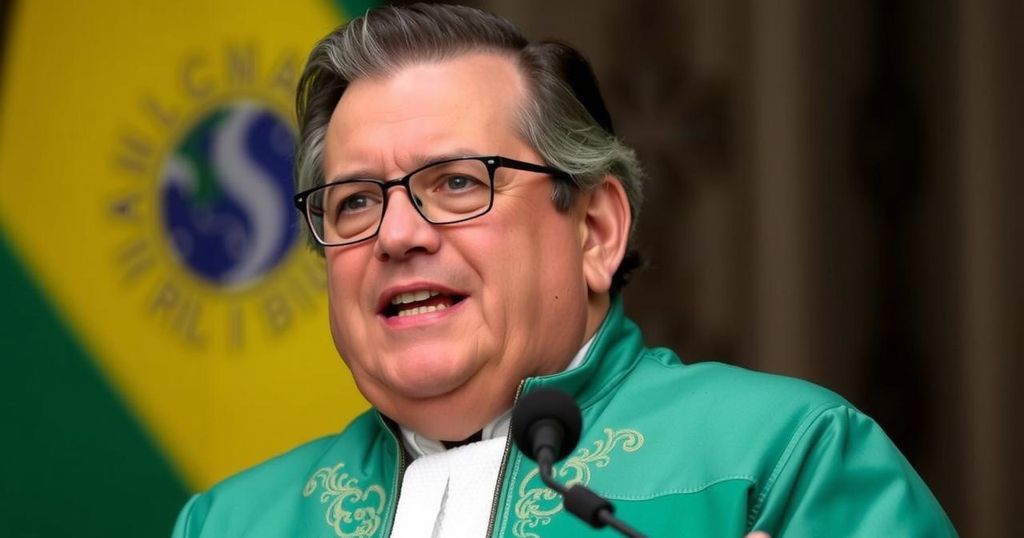Bolivia held a divisive popular vote for its top judges amidst strict campaign rules. Innovative promotional tactics by candidates emerged. The unique electoral system has been criticized as undermining judicial impartiality, leading to public apathy and low participation. Currently, only four of nine judicial seats are contested, exacerbating concerns and reflecting political tensions in Bolivia, with implications for similar processes in Mexico.
Bolivia recently held a divisive popular vote for its top judicial posts amidst strict campaigning restrictions. Candidates, nonetheless, found creative ways to promote themselves, appearing on snack packaging and substituting subtle messaging in official documents. The country’s unique electoral system, which involves voting for judges, has faced criticism and skepticism from the public, with many voters expressing apathy and frustration over the bombardment of unknown names on their ballots. Critics assert that the judicial elections have transformed courts into political battlegrounds rather than impartial institutions.
This election, which comes after significant delays and controversies, is being closely monitored as it may signal future developments in Bolivia’s complex political landscape. While the election was supposed to fill nine seats on the Constitutional Court, only four were contested due to recent political maneuverings that left some judges in their positions, thus maintaining the power balance within the court.
This practice of electing judges is unique globally, matched only by similar processes recently enacted in Mexico following President López Obrador’s judicial reforms. Increasing concerns have arisen about the potential for politicized judiciaries to undermine democracy across the region. Public sentiment toward the election is largely apathetic, as previous voting rounds under former President Morales have shown with low turnout and a significant number of blank or null votes cast.
Ultimately, Bolivia’s electoral process illustrates a complex interplay of political allegiances and power struggles that raises questions about the efficacy and integrity of the judiciary. All eyes are on the results of this controversial election, as they may carry implications for future governance in Bolivia and influence emerging judicial election trends in the region.
Bolivia’s judicial election system is a rare phenomenon, marking the country as the only one globally to elect its high-ranking judges through popular vote. This system originated after the controversial reforms initiated by former President Evo Morales in 2009, aimed at rooting out corruption and increasing democratic participation. However, as seen in past elections, the public often finds itself disengaged from the process, leading to widespread concerns about the judicial system’s independence and effectiveness, especially as political tensions rise. In light of potential future reforms in neighboring Mexico, the outcome of Bolivia’s judicial elections may impact similar processes elsewhere in Latin America.
The recent judicial election in Bolivia underscores deep-rooted political tensions and public disillusionment with a system perceived to favor political manipulation over judicial integrity. While the elections proceed amidst challenges and controversies, the apparent apathy of the electorate suggests a need for broad reforms to restore confidence in the judiciary. As Bolivia navigates this complex landscape, the outcomes of these elections may have far-reaching implications for both national governance and regional practices regarding judicial elections.
Original Source: www.voanews.com






